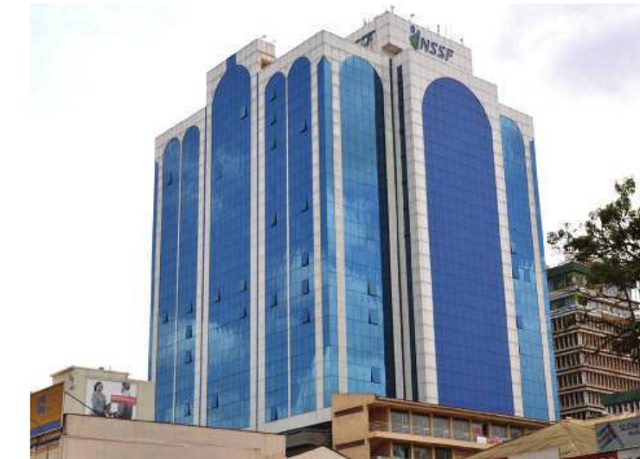
Kampala, Uganda | THE INDEPENDENT | The National Social Security Fund has won a landmark case that has saved workers saving up to 43 billion shillings.
Uganda Revenue Authority had written to NSSF seven years ago, informing the agency that the interest paid to members accounts is accepted as an allowed deduction. This meant that NSSF was supposed to pay taxes before paying interest to the members, effectively reducing the value of the members savings.
This was a change of opinion by the URA which had in 2001 allowed NSSF to deduct payable interest, as an expense. According to the judgement by the Commercial Division of the High Court, the URA conducted an audit for the period 2005 to 2012 and issued an assessment of 30.5 billion Shillings as principal tax and a penal tax interest of 12 billion Shillings to NSSF, disallowing the said interest as an allowable deduction.
But the Fund objected to the assessment on the ground that it was entitled to deduct the said interest under section 25 (1) of the Income Tax Act. It then filed a suit in the High Court of Uganda challenging the decision. However, due to a precedent set in an earlier decision by the court in Uganda Revenue Authority versus Rabbo Enterprises Ltd and another, the matter was referred to the Tax Appeals Tribunal.
The Tribunal delivered a ruling in favour of URA to the effect that the interest payable to the NSSF members is not an allowable deduction and that the NSSF must pay the principal tax and penal tax assessed. However, in the minority ruling, one of the Tribunal members held that the Appellant was not liable to pay the penal tax assessed.
The NSSF then appealed the decision at the High Court’s Commercial Division arguing that the Tribunal erred in law when they found that the contributions made by the Applicant’s members do not create a debt on the part of the Fund and therefore interest payable to savers was not a deductible expense.
The Tribunal’s decision was also interpreted to mean that the annual interest paid by the NSSF to its members was not incurred in the production of income included in the gross income, which the NSSF also challenged.
NSSF, the Appellant, was represented by Oscar Kambona, Cephas Birungi, Bruce Musinguzi and Martin Mbanzam while Mwajuma Nakku Mubiru, Ronald Baluku Masamba, Barbra Ajambo Nahone and Aliddeki Ssali Alex represented URA.
In the ruling, Justice Boniface Wamala stated that the appeal has succeeded on all five grounds in the appeal.
“In substance, therefore, the appeal wholly succeeds. I accordingly set aside the ruling and orders of the Tax Appeals Tribunal and substitute them with the decision that… the Appellant is not liable to pay the… tax assessed .” the judge ruled. He also directed URA to pay the costs of the proceedings in both the commercial division and the Tax Appeals Tribunal.
The NSSF says if the court had ruled in favour of URA, it would have meant that the interest payable to savers annually, reduces drastically.
The NSSF is now entitled to the refund of the 30 percent of the 432 or about 140 billion shillings, it had deposited in an escrow account as demanded by the law when there is a tax dispute going on.
******
URN
 The Independent Uganda: You get the Truth we Pay the Price
The Independent Uganda: You get the Truth we Pay the Price


